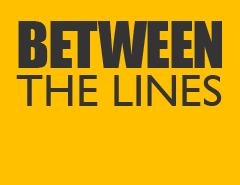Inflation rises in the USA for the fifth consecutive month, dollar rises on Janet Yellen’s statement, whilst the Canadian dollar slumps as Bank Of Canada’s forward guidance stirs markets
After announcing that the base interest rate would remain at 0.5%, the Bank Of Canada caused a dramatic sell off in the Canadian dollar (versus all its major peers), by suggesting that a base rate cut remained a possibility, should the incoming president Trump follow through with his verbal commitments to enact protectionist policies. This policy could have a damaging and immediate effect on the Canadian economy, particularly in terms of its oil industry. BOC Governor Stephen Poloz also warned of other negative consequences if U.S.A. President elect Donald Trump enacted these protectionist policies.
The cost of living in the U.S.A. rose for the fifth consecutive month in December, pushing inflation closer to the Federal Reserve’s target. As a consequence investors believe the Fed’s aim; to raise base rates several times during 2017 and to aim for a form of “normalcy” by 2019, appears both logical and justified. Consumer prices in the USA rose by 0.3% in December, after a 0.2 percent gain the previous month, official figures revealed on Wednesday. Prices were up 2.1% annually, the most since June 2014. Increased demand allows USA companies to increase prices, thereby further increasing inflation, encouraging the Fed to raise interest rates.
Federal Reserve Chair Janet Yellen stated on Wednesday that the U.S. economy is close to the Fed’s objectives of “full employment” and “price stability”. The dollar rose as investors took this as confirmation that base rates will rise in 2017;
“It is fair to say the economy is near maximum employment and inflation is moving toward our goal, it makes sense to gradually reduce the level of monetary policy support, the timing of the next interest-rate increase will depend on how the economy actually evolves over coming months.”
The S&P 500 rose by 0.2% to 2,271 in New York, just 0.2 percent below the all time high on Jan. 6th. The DJIA fell by 22 points to 19,804 and is now down 1% since Jan 6th, when it came within one point of the 20,000 psyche barrier. European markets experienced a mixed day on Wednesday, DAX up 0.51%, CAC down 0.13%, UK’s FTSE 100 up 0.38% and Italy’s MIB up 0.32%.
West Texas Intermediate crude slumped by 2.2% to $51.31 a barrel, the most in a week. Gold futures lost 0.7%, ending the seven day rise for the precious metal, the longest trend witnessed since November.
GBP/USD lost 0.9% on Wednesday, after its 3% gain on Tuesday, as the Asian session opened cable was printing at 1.2258. Having topped out at 1.2416 the previous day, after dipping as low as 1.1983 on Monday, a reversion to a recent mean was expected. EUR/GBP rose by 0.6% at 86.80 pence per euro, the currency pair peaked at 88.53 on Monday. Sterling also fell versus yen and the Swiss Franc during Wednesday’s sessions.
The dollar rose versus all its major peers, gaining 0.7% against the euro, 1.2% against sterling and 1.5% against the yen. The dollar index, a gauge of the U.S. currency versus a basket of its six major peers, was at 101.260, up 0.95% after falling to its lowest level since Dec. 8th on Tuesday. The dollar rallied versus the currencies of the NAFTA (North American Free Trade Agreement) partners; Canada and Mexico, adding 1.7% versus the Canadian dollar.
Economic calendar events for Thursday January 19th, all times quote are London times.
12:45, currency effected EUR. European Central Bank Rate Decision (JAN). There is little expectation that the ECB will decide to alter the base rate from its zero level. However, there are a raft of ECB linked data metrics published at 12:45, which traders should observe carefully. Naturally any change from zero would have a dramatic effect on the euro’s value versus its major peers and with the Fed having shown the way in December, perhaps the ECB may feel sufficiently emboldened (in 2017) to eventually begin its own rate rise programme from the current floor.
12:45, currency effected EUR. ECB Asset Purchase Target (JAN). With a current QE/asset purchase programme of €80b per month, economists polled expect no change, given there has been no forward guidance on the matter.
13:30, currency effected EUR. ECB Press Conference. Traders would be advised to monitor this conference carefully, for any clues and signs that Mario Draghi and the ECB board members are considering a change to the current monetary policies in place. In particular, any hints with regards to imminent base rate rises, could cause a secular rally in the euro.
13:30, currency effected USD. Initial Jobless Claims. The weekly claim figure is expected to come in at 251k, a modest rise from the previous reading of 247k and in line with a reduction of seasonal, temporary jobs.
16:00, currency effected USD. DOE U.S. Crude Oil Inventories. Oil suffered a slump of circa 2.2% during Wednesday, moreover, the projections that WTI would reach $65 per barrel; due to OPEC cuts and a cold snap in the USA and Europe, look erroneous. Should the USA have built up considerable inventories, then the oil price and the value of the USA and Canadian dollar, could be effected.

